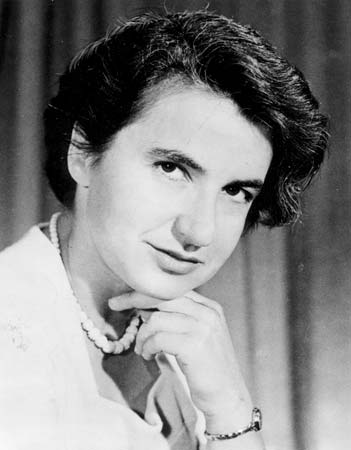Rosalind Franklin (1920-1958) was a British biophysicist and X-ray crystallographer.
Her discoveries related to the molecular structure of coal and carbon were used to develop strong carbon fibers and slow reactions in nuclear power plants.
Early Life
In 1938, Franklin began her studies at Cambridge. In her second year, she discovered the subject of crystallography. Instead of pursuing a Ph.D. at Cambridge, she took up a position with the British Coal Utilisation Research Association.
Scientific Contributions
As an Assistant Research Officer at the British Coal Utilisation Research Association, she worked with machine tools in the mechanical shop, and this work inspired her Ph.D. in 1945 on classifying coals and predicting their performance as fuels. In 1947, Franklin moved to Paris to study x-ray crystallography at the Laboratoire Central des Services Chimiques de l’Etat, furthering her knowledge of coal.However, a three-year fellowship at King’s College London caused her return to England in 1951. There she worked as a research associate in the biophysics unit, and she began working on DNA fibers through x-ray diffraction techniques. She made important discoveries on how to prepare DNA specimens to obtain sharp x-ray diffraction patterns.
In 1953, researcher Maurice Wilkins gave American chemist James Watson a copy of Franklin’s original DNA data without her knowledge. Wilkins later claimed that Franklin had authorized the free use of her data. With this important information, Watson and Francis Crick were able to complete their model of DNA structure. However, Franklin would never be fully credited for her contribution.
Franklin left King’s College dissatisfied and pursued different research on tobacco mosaic virus at Birkbeck College. Within two years, she was recognized as the authority on the subject.
At age 37, Franklin passed away tragically young from ovarian cancer. Her three research topics made significant contributions in their respective fields.





